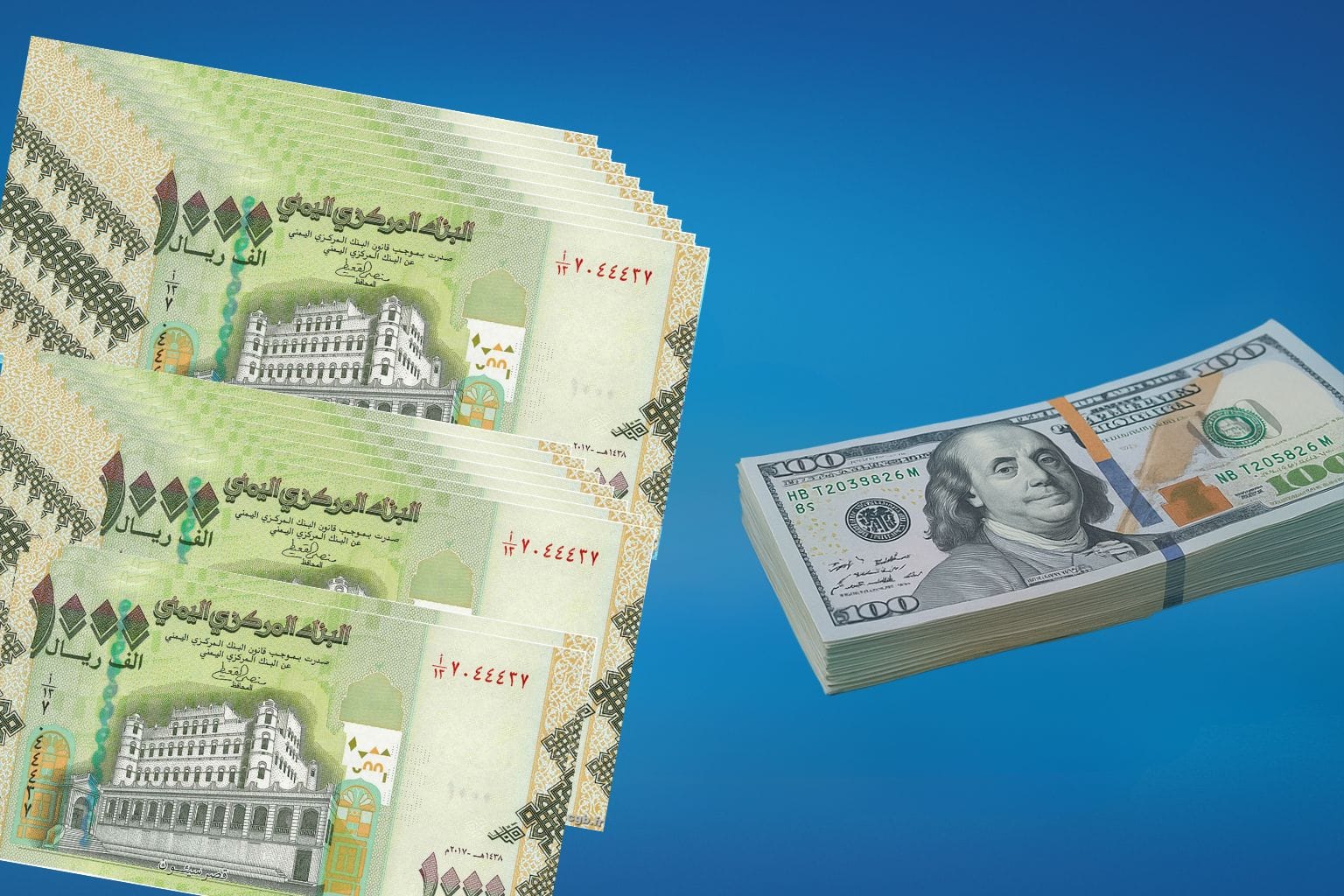
South24 Center
19-06-2025 at 7 PM Aden Time
|
|
Aden (South24 Center)
The Yemeni rial recorded a new low against the US dollar on Thursday (June 19), with exchange rates in Aden reaching 2,700 YER for buying and 2,727 YER for selling, while the Saudi riyal traded at 710 YER for buying and 715 YER for selling, according to data published by ‘South24 Center’.
This marks one of the lowest values for the Yemeni rial since its official circulation began after unification in 1990. The sharp depreciation is expected to lead to further price increases for imported goods, particularly food items, coinciding with shrinking purchasing power for employees in government-controlled southern areas.
Central Bank of Yemen Governor Ahmed Ghaleb Al-Mabaqi stated that the current monetary crisis is a result of accumulated factors, including monetary division, attacks on oil exporting ports, and the country losing most of its revenue sources. During a Wednesday seminar organized by the Sanaa Center for Studies, he revealed that since April 2022, the Yemeni government has lost over 80% of local resources and 65% of foreign income after the Houthis diverted customs revenue to Hodeidah port and forced importers to route goods through their territories.
Al-Mabaqi noted that the Central Bank is rebuilding the banking system from Aden, with three of eight major commercial banks already relocating there and obtaining operational licenses, while others are expected to complete the process soon. He emphasized that no banks currently operate from Sanaa after their administrations pledged to cut ties with Houthi authorities.
The governor described the exchange rates in Houthi-controlled areas as "fictitious and forcibly imposed", pointing out that the group circulates damaged banknotes beyond their lifespan without printing new currency.
Regarding efforts to address the monetary division, Al-Mabaqi disclosed that direct talks with the US Treasury Department have yielded a preliminary agreement to continue transfers to Houthi areas through a supervised, transparent mechanism. The deal allows commercial bank branches to operate there under third-party international auditing, similar to the model applied in Gaza, with five firms proposed for this oversight role and one already operational.
Al-Mabaqi highlighted the "financial headache" posed by the Yemen International Bank, a sanctions-hit entity with debts exceeding 2.2 trillion YER that can no longer meet its obligations, especially to humanitarian institutions.
He viewed the US designation of Houthis as a Foreign Terrorist Organization (FTO) as an opportunity to rectify long-standing banking sector distortions, stating: "The designation helps readjust the financial system and curb illegal practices that paralyzed banks during the war years. We're no party to political or military conflicts and our goal is safeguarding financial stability for all Yemenis without discrimination."
Al-Mabaqi concluded his remarks by announcing a newly-formed budget committee to coordinate with the government to curb the parallel economy and black-market activities through strict regulations, including confining imports to only registered and authorized traders. He stressed that restoring confidence in the national currency and banking institutions "is no longer optional but essential to salvage Yemen's remaining economic foundations".
The crisis underscores Yemen's deepening economic fragmentation amid a protracted conflict and competing monetary policies, between the Houthi-controlled areas and the Yemeni legitimate government.
Previous article